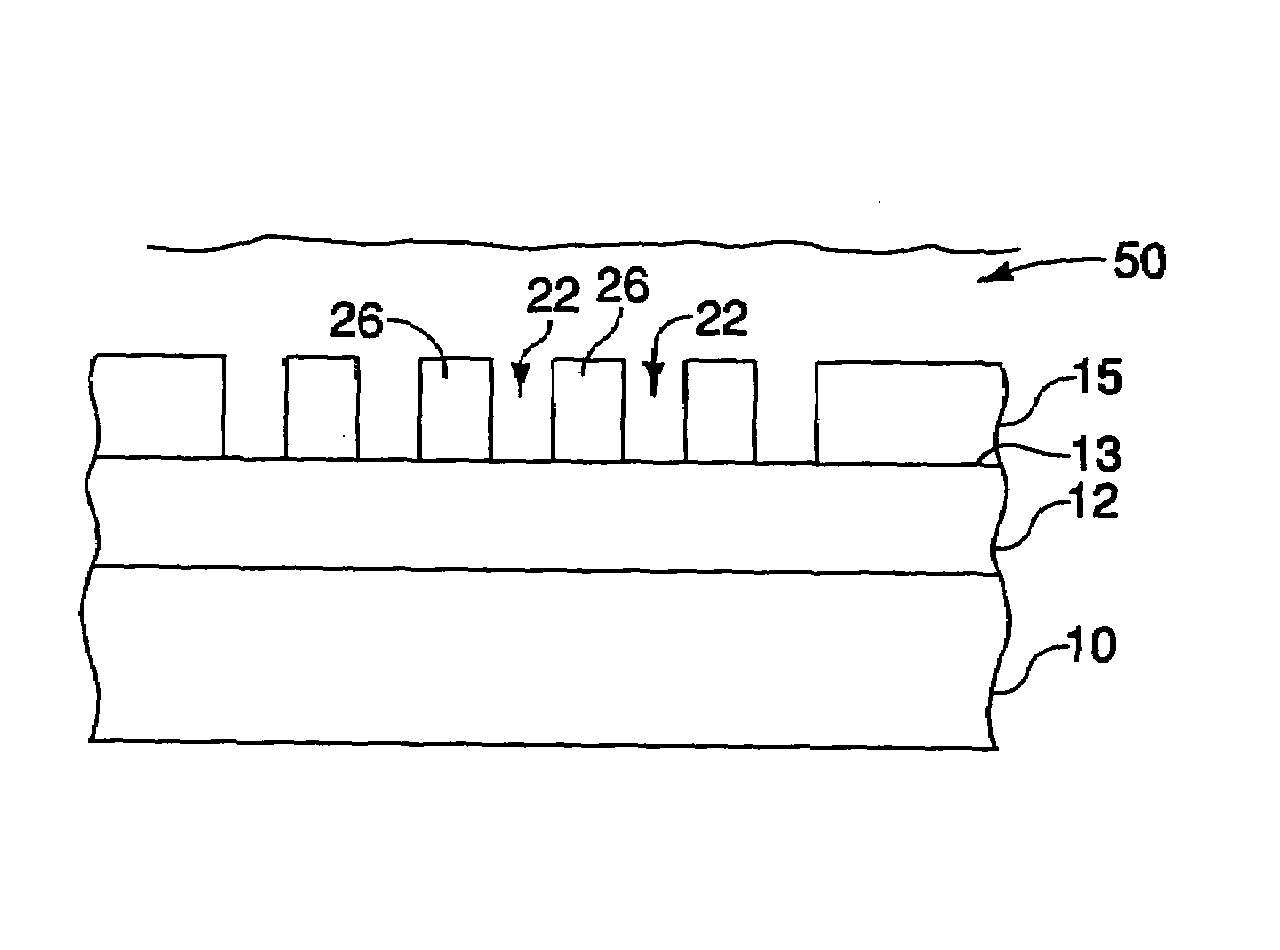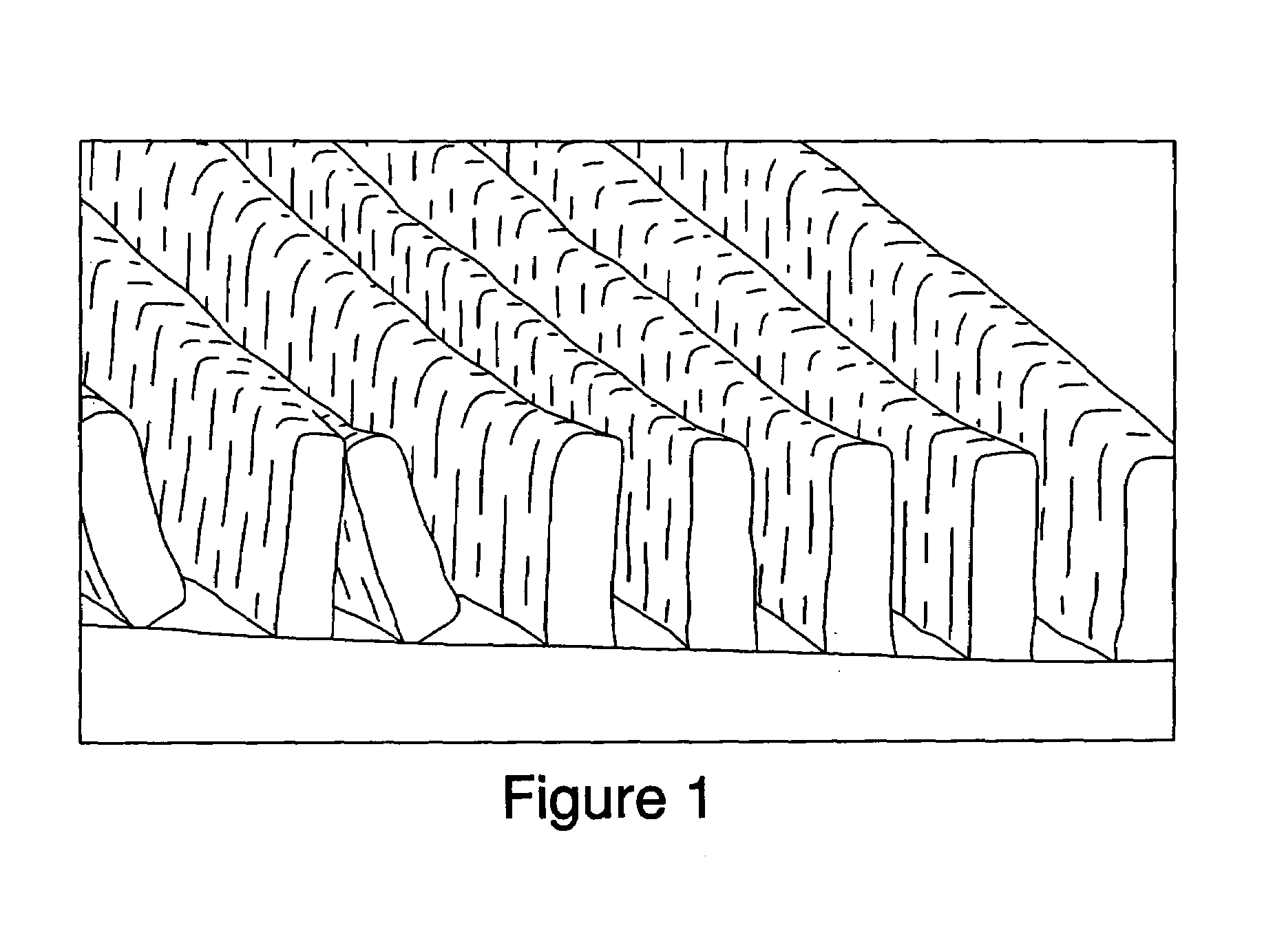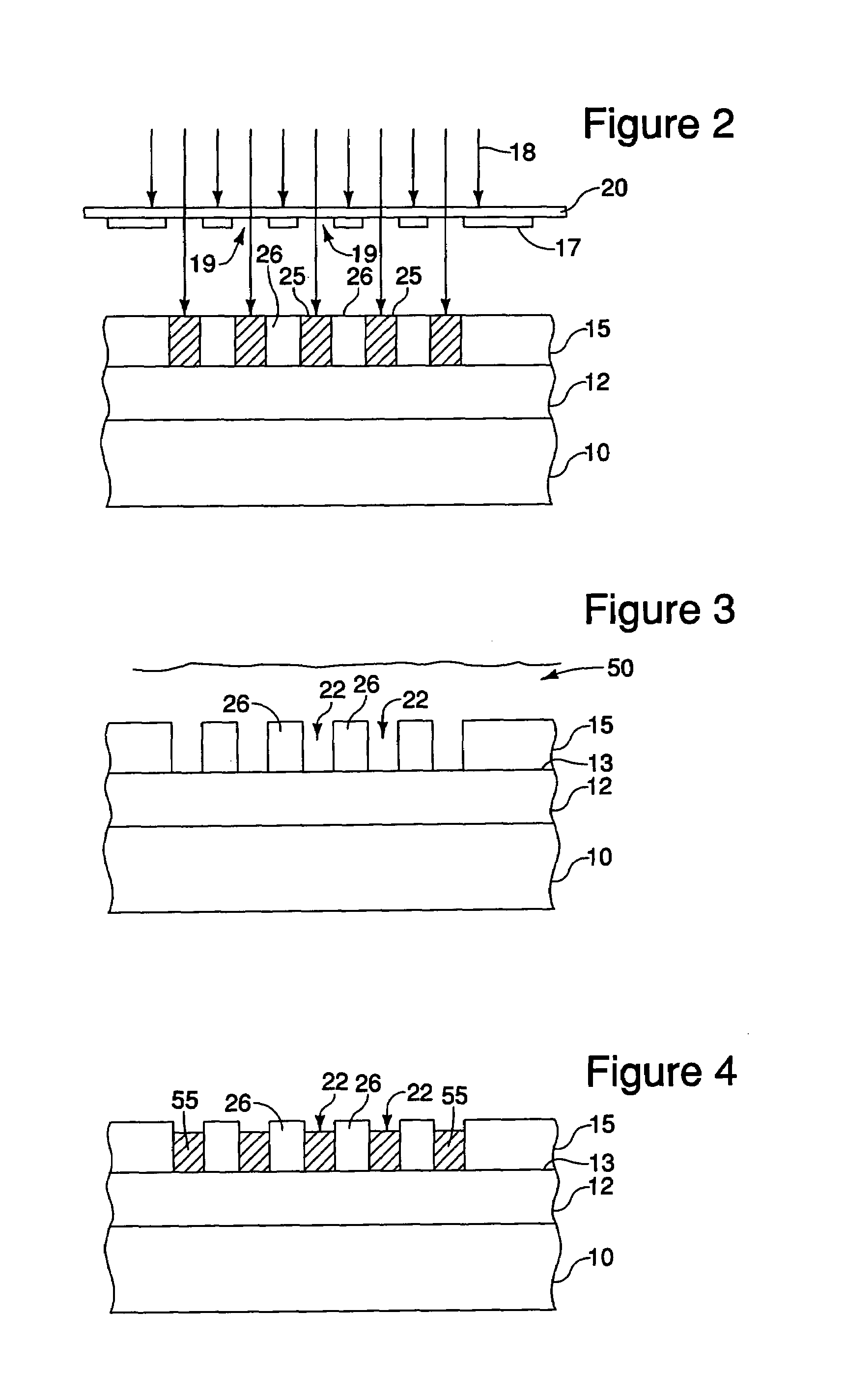Methods of eliminating pattern collapse on photoresist patterns
a technology of resisting pattern and pattern, applied in the field of electronic components manufacturing, can solve the problems of destroying the pattern that was originally formed, affecting the quality of the material, and the connection cannot be properly placed on the blanket metal layer, so as to prevent deformation or collapse, resist footing, and prevent profile abnormalities
- Summary
- Abstract
- Description
- Claims
- Application Information
AI Technical Summary
Benefits of technology
Problems solved by technology
Method used
Image
Examples
example 1
[0047]A bare silicon wafer was processed with 2800A AR360 resist on 450A DongJin Barc and exposed with a reticle at standard exposure / focus. The wafer received a standard post-exposure bake. The wafer was subsequently developed and rinsed in a dump rinse tank, and then pulled out from the tank and placed horizontally. A Klebesol slurry using silica particles was applied to the wafer before the drying process could induce collapse (toppling) of the patterns 26a (FIG. 6). The time from the pulling out of the tank of the wafer to applying the Klebesol slurry was preferably under 10 seconds, to avoid collapse of the patterns.
[0048]FIG. 6 is a photograph illustrating silica particles 55a of the Klebesol slurry physically supporting resist lines 26a without collapse, fabricated as detailed in Example 1. As shown in FIG. 6, the resist lines 26a have a vertical and substantially defect-free profile, with virtually no pattern collapse and no resist footing or profile abnormalities. The silic...
example 2
[0057]A bare silicon wafer was processed with 2000A AR360 resist from JSR on 450A DongJin Barc. After the resist formation, the wafer was baked at a temperature of about 130° C. for about 90 seconds and then exposed on an ASML scanner PAS1100. The wafer was baked again, at a temperature of about 130° C. for about 90 seconds. The wafer was subsequently developed with ARCH 4262 developer for about 30 seconds. While spinning the developer on the wafer, a TOK FSC050 polymer solution was added by spin coating to displace the developer. The wafer was rinsed in a dump rinse tank, and then pulled out from the tank and baked at a temperature of about 170° C. for about 60 seconds. After the baking, a de-ionized (DI) water rinse was applied.
[0058]FIG. 10 is a photograph illustrating resist pattern lines 126a without profile abnormalities and without toppling, fabricated as detailed in Example 2 above. As shown in FIG. 10, the resist lines 126a have a vertical and substantially defect-free prof...
PUM
| Property | Measurement | Unit |
|---|---|---|
| temperature | aaaaa | aaaaa |
| temperature | aaaaa | aaaaa |
| temperature | aaaaa | aaaaa |
Abstract
Description
Claims
Application Information
 Login to View More
Login to View More - R&D
- Intellectual Property
- Life Sciences
- Materials
- Tech Scout
- Unparalleled Data Quality
- Higher Quality Content
- 60% Fewer Hallucinations
Browse by: Latest US Patents, China's latest patents, Technical Efficacy Thesaurus, Application Domain, Technology Topic, Popular Technical Reports.
© 2025 PatSnap. All rights reserved.Legal|Privacy policy|Modern Slavery Act Transparency Statement|Sitemap|About US| Contact US: help@patsnap.com



